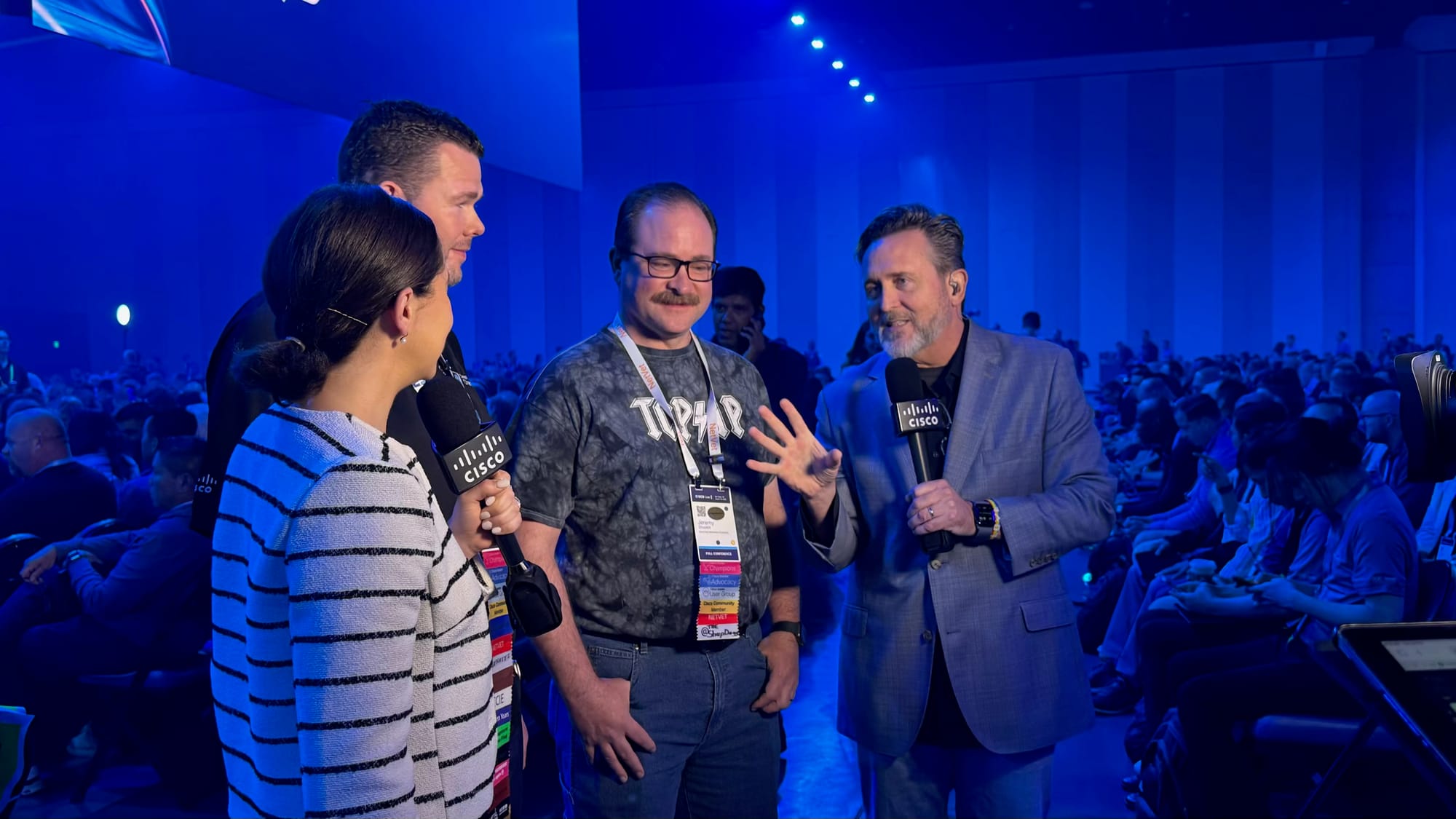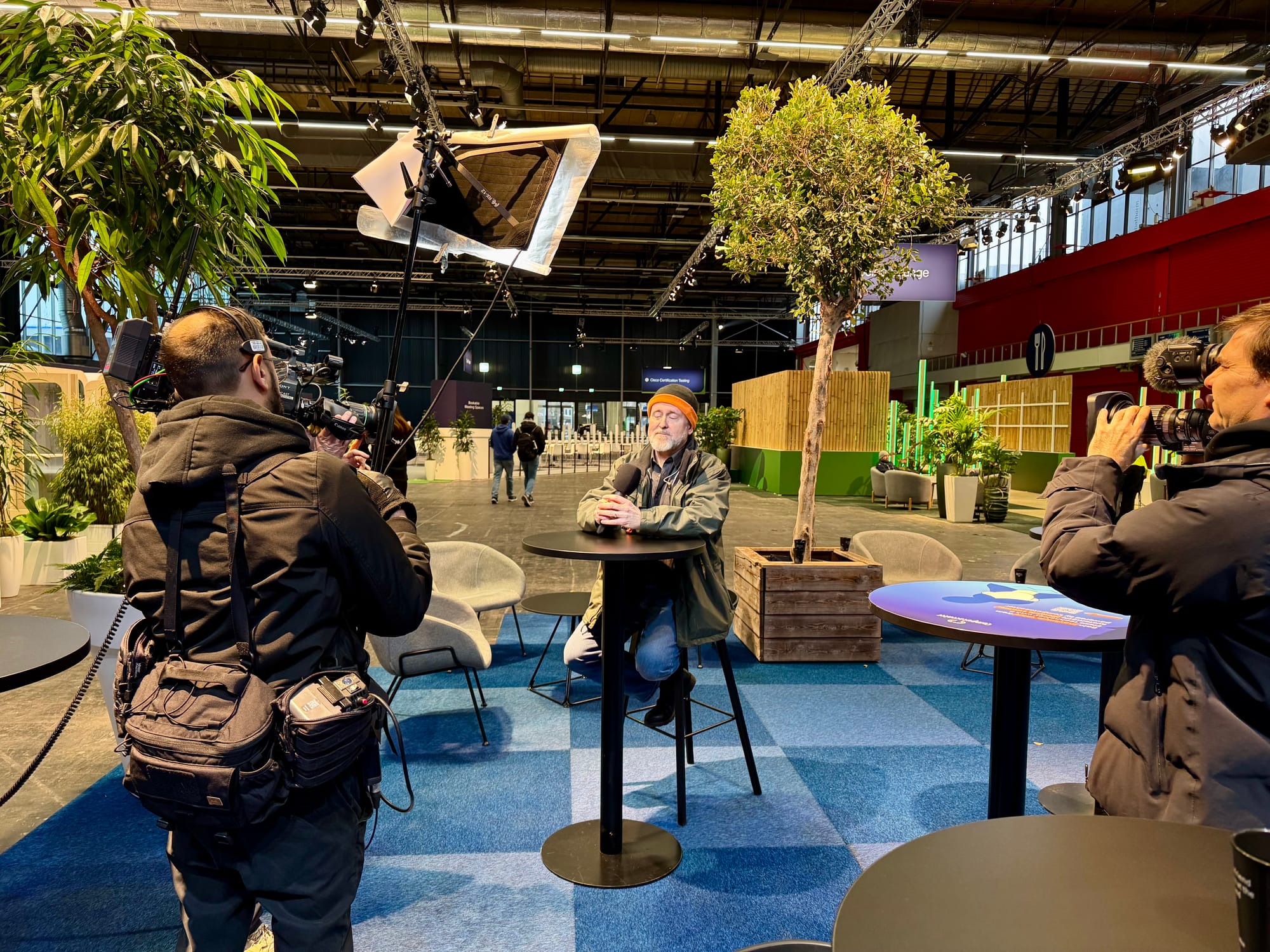Chasing Consistency: Why You Can't Rehearse Collaboration Alone

There's a particular frustration that comes from knowing you're good at something—but only sometimes. This week, as I prepare for a complex video project, I'm confronting a truth that's been nagging at me for years: I can't consistently deliver the quality I'm capable of when it matters most.
The problem isn't knowledge. I know what excellent interviewing looks like. I've done it. I've had sessions where every question lands cleanly, where I redirect conversations with authority, where my delivery is confident and my words are precise.
But I can't always access that level. And the gap between my best days and my worst days is what keeps me up at night.
The Challenge: Collaboration Can't Be Rehearsed Solo
Here's what makes this particularly tricky: interviewing is fundamentally collaborative. You're responding in real time to another human who's unpredictable. They wander. They misunderstand. They answer a different question than the one you asked.
The skills you need—redirecting gracefully, bridging smoothly, asking clean single questions under pressure—these only emerge in conversation. You can't develop them by talking to yourself in an empty room.
And yet, that's exactly what I've been doing for nearly two decades.

The Old Method: Practicing in a Vacuum
Before joining TechWiseTV in 2006 as one of three content creators, my practice routine was straightforward: find an empty conference room, turn on a recorder, and run through my material. The recorder served one purpose—creating just enough psychological pressure to force real-time thinking.
It helped with some things. I got better at articulating complex ideas clearly. I learned to economize language. I reduced filler words.
But it couldn't touch the collaborative skills—the ones that only show up when another person throws you off your script. When I transitioned from giving presentations to hosting conversations with experts, I discovered I was missing crucial capabilities. I enjoyed the work, and my presentation skills definitely helped. But hosting is different. More dynamic. More dependent on reading your guest (often through a screen), adapting on the fly, and maintaining control without dominating.
I'd have good sessions and bad sessions, and I never quite figured out what made the difference.
The Breakthrough: AI as Practice Partner
A few weeks ago, I stumbled onto something that might actually move the needle.
I was prepping for a series of interviews by reviewing my planned questions in ChatGPT. On a whim, I gave it a persona—assigned it the role of my interview subject—and asked it to respond in character using voice mode.
What happened next surprised me.
The AI's voice (which I'd apparently selected at some point) has genuine presence: mature, intelligent, with real gravitas and vocal dynamics. Not perfect, but remarkably effective at creating the illusion of a real conversation.
More importantly, it responded. It pushed back. It gave me something to work with.
What Makes This Different
This isn't just a fancier version of talking to a recorder. It's fundamentally different in three ways:
First, it creates real conversational pressure. I'm not just reciting—I'm engaging with a responsive entity that requires me to listen, process, and adapt. The cognitive load is higher. The stumbles I make in practice are the same ones I'd make on camera, which means I can actually work on fixing them.
Second, it lets me practice the collaborative skills. I can make the AI wander off topic. I can program it to misunderstand my questions. I can create the exact scenarios that throw me off in real interviews—then practice recovering from them. Over and over, until the recovery becomes automatic.
Third, it reveals my patterns. When I stumble, I can immediately try again. When I nail it, I can analyze what made it work. I'm building a library of what my best performance actually looks like, so I can recognize when I'm slipping below it.
The Two Skills That Matter Most
Through this practice, I've identified the two moves that separate good interviews from mediocre ones:
Correct and redirect - When the conversation drifts, bring it back with authority. Not apologetically, not tentatively, but as the person who owns the direction of the conversation.
Complement and bridge - Acknowledge what was said (so your guest feels heard), then smoothly transition to where you need to go next.
Both require the same final move: delivering a clean, single question. No hedging language like "So I guess what I'm wondering is..." No compound questions that give your guest three different escape routes. No filler words that telegraph uncertainty.
I already know how to do this. The challenge is doing it every time—even when I'm tired, distracted, or facing an unexpectedly difficult subject.
What I'm Actually Building
What I'm working on isn't a new skill. It's reliability.
The goal is to shrink the gap between my best days and my worst days until there's barely any difference. To show up at my best more often. To know I can deliver quality, not just hope I will.
This is what consistency actually means: not perfection, but a floor that doesn't drop below a certain level. Fewer wild swings. Faster recovery when something does throw me off. Performance you can count on.
The Larger Point
Here's what this experience teaches about getting better at anything collaborative: You can't rehearse partnership alone.
For years, I practiced in empty conference rooms because that was the only option. It helped, but it had a ceiling. The skills that matter most in live conversation—adapting, redirecting, maintaining control while staying flexible—those only develop when you have a partner to work with.
AI doesn't replace real human interaction. But it does something I couldn't do before: it lets me put in the reps. It gives me a practice partner who's available whenever I need one, who can be programmed to challenge me in specific ways, and who never gets tired of me trying the same transition twenty times until I get it right.
Field Notes, Not a Blueprint
I'm sharing this as a work in progress, not a finished solution. I've been using this method for a few weeks. I don't know its limits yet, what bad habits it might create, or what I'm missing by not having real humans in the room.
What I do know is this: I have several high-stakes performances coming up in the next few months—Cisco Live Amsterdam among them. These will reveal whether I've actually closed the consistency gap or just convinced myself I'm making progress.
The work continues. The stakes remain high. And I'm drilling fundamentals like a student, years into this career, because that's what consistency actually requires—returning to the basics with new eyes, deeper stakes, and better questions.
The bottom line: You can't rehearse collaboration alone. But with the right tools, you can practice the moves that make collaboration work—the redirects, the bridges, the clean questions. Find ways to practice that expose your weak points under realistic conditions, then drill them until reliable performance becomes the norm, not the exception.

